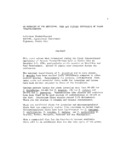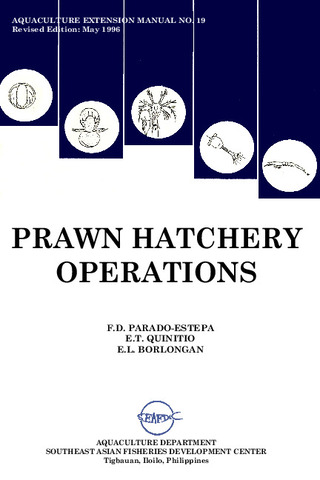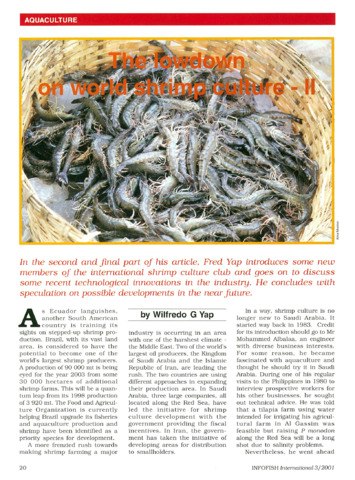Experimental evaluation of probiotics as biocontrol/bioremediation in the rearing of shrimp (Penaeus monodon)
| dc.contributor.author | de Castro-Mallare, Teresa R. | |
| dc.contributor.author | Golez, Nelson V. | |
| dc.contributor.author | Tendencia, Eleonor | |
| dc.contributor.editor | Nagasawa, Kazuya | |
| dc.date.accessioned | 2020-07-22T01:11:58Z | |
| dc.date.available | 2020-07-22T01:11:58Z | |
| dc.date.issued | 2005-03 | |
| dc.identifier.citation | de Castro-Mallare, T. R., Golez, N. V., & Tendencia, E. A. (2005). Experimental evaluation of probiotics as biocontrol/bioremediation in the rearing of shrimp (Penaeus monodon). In K. Nagasawa (Ed.), Recent Advances in Diagnosis and Prevention of Fish and Shrimp Diseases in Southeast Asia (pp. 153–167). Tigbauan, Iloilo, Philippines: Aquaculture Department, Southeast Asian Fisheries Development Center. | en |
| dc.identifier.isbn | 9718511732 | |
| dc.identifier.uri | http://hdl.handle.net/10862/5923 | |
| dc.description.abstract | Two hundred fifty-liter (250-L) fiberglass tanks each equipped with 15-L capacity filter tanks are adequate for screening of commercial probiotics. The application of some commercial probiotics in the culture water is more advantageous than adding it to the feeds. Probiotics A, C, and F, when added to the culture water, gave significantly different (P<0.05) average body weights (ABW) and survival rates (SR) of shrimp (Penaeus monodon) compared with other treatments. Probiotics B, D, E, and G when added to the culture water had higher ABWs but were not significantly different (P>0.05) from the other treatments. SR when Probiotic G was added was significantly different (P<0.05) from the control. The results of this study showed that one should be cautious in the use of commercial probiotics because not all are effective. Users should also take note of the active ingredients in the product they buy. | en |
| dc.language.iso | en | en |
| dc.publisher | Aquaculture Department, Southeast Asian Fisheries Development Center | en |
| dc.subject | Penaeus monodon | en |
| dc.subject | Artemia | en |
| dc.title | Experimental evaluation of probiotics as biocontrol/bioremediation in the rearing of shrimp (Penaeus monodon) | en |
| dc.type | Book chapter | en |
| dc.citation.spage | 153 | en |
| dc.citation.epage | 167 | en |
| dc.citation.bookTitle | Recent Advances in Diagnosis and Prevention of Fish and Shrimp Diseases in Southeast Asia | en |
| dc.subject.asfa | probiotics | en |
| dc.subject.asfa | growth | en |
| dc.subject.asfa | survival | en |
| dc.subject.asfa | biological control | en |
| dc.subject.asfa | bioremediation | en |
| dc.subject.asfa | shrimp culture | en |
| dc.subject.asfa | aquaculture | en |
| dc.subject.asfa | feeds | en |
| dc.subject.asfa | animal diseases | en |
| dc.subject.asfa | recirculating aquaculture systems | en |
| dc.subject.scientificName | Penaeus monodon | en |
Files in this item
รายการนี้ปรากฏใน (s)
-
Recent Advances in Diagnosis and Prevention of Fish and Shrimp Diseases in Southeast Asia [43]
Terminal Report of the Regional Fish Disease Project on “Development of Fish Disease Inspection Methodologies for Artificially-Bred Seeds” Funded by the Government of Japan Trust Fund from 2000 to 2004


 AQD Access only
AQD Access only



